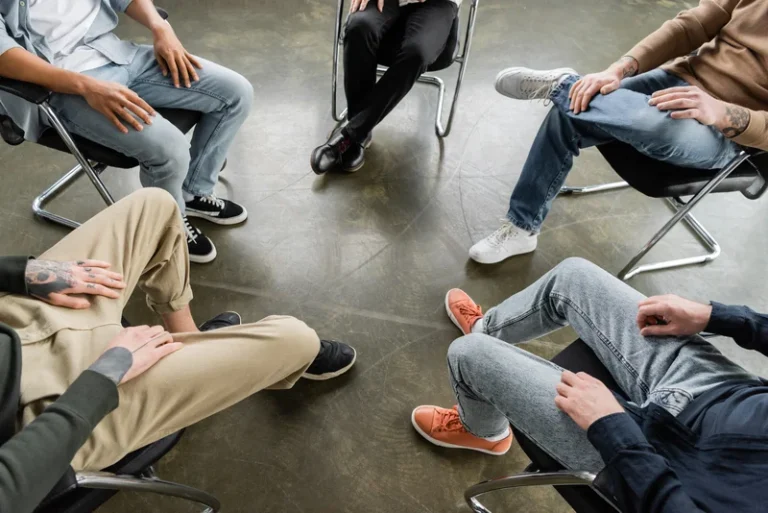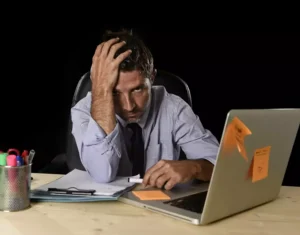
In another survey, 63% of employees admitted that it was easy to bring booze to work, drink during the workday, or get alcohol at work. In fact, positive drug tests among workers have doubled in recent years. Going out for drinks has become a routine for work-related celebration, whether it’s winning a new account or nailing a big presentation.
Cheeky diet soft drink getting you through the work day? Here’s what that may mean for your health
That quick drink at five o’clock doesn’t have to turn into a drunken night – here’s how. When it’s apparent that you work under the influence, your job could be on the line. They may notice that you take a lot of sick leave or that you’re often late to work. You might make a lot of mistakes, miss deadlines, or make excuses for not doing your job. If you still use drugs illegally and it’s apparent at work, the ADA doesn’t protect your job.
- Heavy drinking during the workweek contributes to a prevalence of alcohol-related health problems among workers, inevitably affecting the productivity of firms.
- While this habit may seem normal and safe, problems can begin to develop over time.
- Use our Unit and Calorie Calculator to find out what’s in your drink.
Physical Health Risks of Regular After-Work Drinking
This underscores the importance of addressing alcohol consumption from both individual and public health policy perspectives to mitigate the risk of liver disease. The Recovery Village Columbus offers several treatment options, including medical detox, inpatient rehab, and more, to provide you with personalized care at our Joint Commission-accredited facility. Contact a Recovery Advocate today to take the first step toward living an alcohol-free life. In seeking professional help, it is crucial to consult with a primary care provider or seek referrals to specialists with addiction expertise. Trusted resources include the Substance Use Treatment Facility Locator and reputable organizations such as the National Institute on Alcohol Abuse and Alcoholism (NIAAA) and the Association for Addiction Professionals (NAADAC).

How Long Should You Wait to Drink Alcohol After a Workout?

One group, in particular, doesn’t appear to be very interested in the perk. Use our Unit and Calorie Calculator to find out what’s in your drink. Getting involved in rounds means you normally end up drinking at the fastest drinker’s pace. Not only might you end up drinking more than you would have if you were buying https://ecosoberhouse.com/article/how-art-therapy-can-help-in-addiction-recovery/ your own drinks, you’ll spend more too. If you drink when you leave the office at five until 11pm, it’s the equivalent of going out at 8pm and staying out until 2am – a big night out by any standards. At North Jersey Recovery Center, we strive to make your addiction treatment experience as comfortable as possible.
Alcohol or Drug Use at Work
- The legal smoking and drinking age in Japan is 20 and the JGA’s code of conduct prohibits gymnasts from doing either during team activities, regardless of age.
- This pattern leaves you tired and sluggish, which increases your odds of craving carbs and caffeine for an energy boost and decreases your odds of wanting to exercise or move.
- Prosecco to toast a project wrap-up, cocktails at the Christmas party, an ‘al desko’ beer to end the week, payday drinks.
The presence of liquor stores in certain communities, particularly among minority populations, can increase access to alcohol, influencing social drinking habits. Furthermore, cultural factors such as beliefs, attitudes, subjective norms, and expectancies about alcohol use play a critical role in shaping individual and group drinking behaviors. This article delves into the effects of drinking alcohol after exercise to explore whether there are health benefits to a post-workout toast — or just a potential hangover. Still, they’re pretty common, especially if you drink regularly or your alcohol use falls into the “heavy drinking” category (binge drinking 5 or more days in the last month). Employers should avoid sponsoring after-work drinks unless they also take measures to monitor for intoxication and provide safe rides. Supervisors should be informed of the role they play – and their own personal liability – if they encourage these events or attend the events and buy drinks.
- Communicating these boundaries clearly and consistently to friends, family, and colleagues is important to ensure they are respected and supported.
- You say alcohol “isn’t even relaxing anymore,” so go on a pilgrimage to find something that is.
- Additionally, a pattern of heavy drinking is universally acknowledged as detrimental to health, potentially leading to conditions such as liver disease and cardiovascular problems.
- Educating oneself about the potential risks and making informed decisions about alcohol consumption can help safeguard cardiovascular health.
- Most of our members (90%) have tried cutting back, however, few experienced any long-term success in changing their relationship with alcohol.
At North Jersey Recovery Center, we are dedicated to making sure all our clients get the best treatment possible. Regardless of how a person develops a drinking or substance abuse disorder, we believe recovery is always possible. Drinking after work is a common practice that millions of people in the U.S. engage in. It’s completely normal to go out and have a drink of beer or wine after work with your co-workers or alone. However, this ordinary act can sometimes end up becoming a problem as time goes on.

Dr. Gautam Mehta from the UCL Division of Medicine and the Royal Free Hospital highlights that only a third of people who drink heavily develop severe liver issues, suggesting individual variability in susceptibility. However, the dangers are substantial and warrant serious consideration for anyone regularly drinking after work consuming alcohol after work. Despite these risks, the social pressure to participate in after-work drinks is significant. Surveys indicate a considerable percentage of employees feel compelled to drink when coworkers or superiors do, linking alcohol consumption with improved work relationships (CNBC).

Start the Journey At North Jersey Recovery Today
The new routine needs to pay off in ways that are similar to the original—eliciting sleep, relaxation or indulgence as needed. The pressures on you are likely to persist, and you will continue to need to decompress at night. With all of that being constant, your best bet is to take a look at the ritual—or tool—you’re using to mark that daily transition and blow off steam. There are lots of options for stress relief that don’t include booze. Choosing one at the end of a long day isn’t easy, but you’ve got powerful incentives working for you and lots of choices below.
Despite changing attitudes towards alcohol consumption, the practice still holds a place in many corporate cultures. After-work drinks are seen as a morale booster and a way to relieve stress after a demanding day at work. A study suggested that one in three workers view after-work drinks as good for team bonding, with these social gatherings averaging 1.8 hours.

